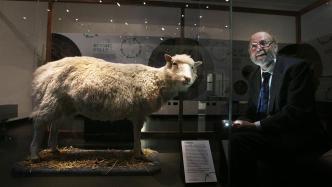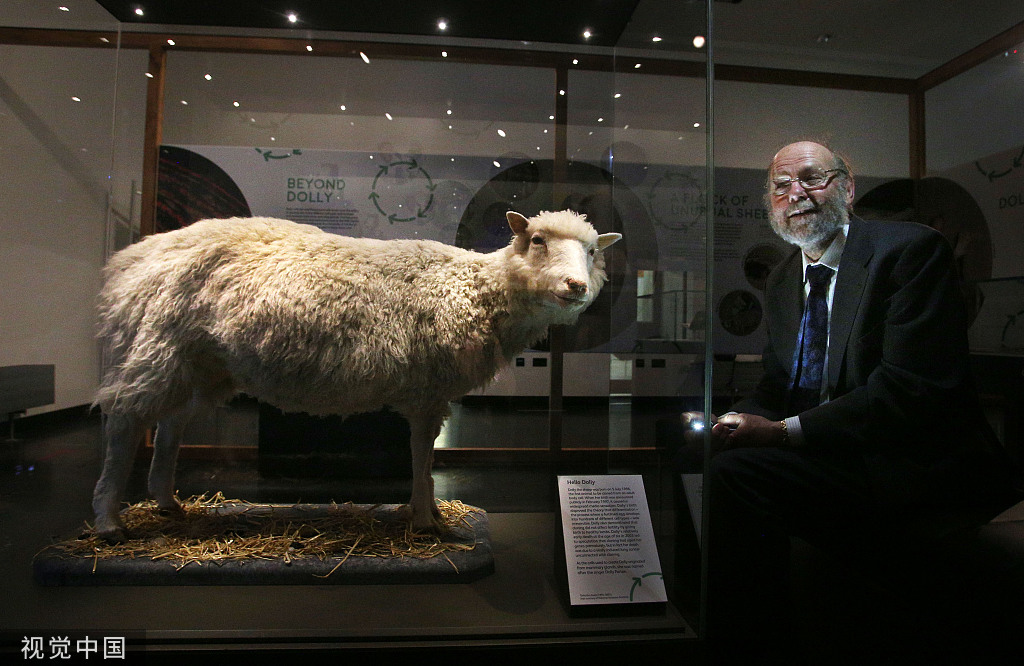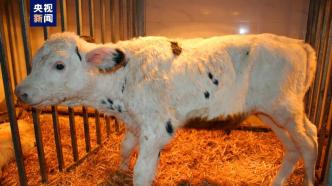

Scientist Ian Wilmut with cloned sheep. Visual China data map
Ian Wilmut, the British scientist who led the creation of Dolly the sheep, the world's first somatic cell cloned animal, died on the 10th at the age of 79.
The University of Edinburgh, where Wilmut worked during his lifetime, announced his death on the 11th, saying that he had suffered from Parkinson's disease for a long time before his death.
The research team led by Wilmut created the world's first somatic cell cloned animal, the sheep "Dolly", at the Roslin Institute of the University of Edinburgh in July 1996. He is therefore known as the "father of sheep cloning".
The genes that created Dolly came from an adult sheep. The researchers extracted the mammary gland cells of this sheep, transplanted their nuclei into the eggs of another sheep whose nuclei were removed, and allowed them to fuse, divide, and develop into embryos. They then transplanted them into the body of a third sheep, and after they matured, they gave birth to " Dolly".
The birth of "Dolly" is regarded as one of the most important scientific achievements of the late 20th century. In a statement, University of Edinburgh Vice-Chancellor David Mafison called Wilmut a "scientific giant" whose relevant research "continues to promote diverse advances in the field of regenerative medicine."
The birth of "Dolly" triggered an upsurge in research on cloning technology by scientists around the world, and also led to a large number of technical and ethical debates. BBC reporter Prabhu Ghosh, who interviewed Wilmut that year, recalled that despite suddenly becoming the center of attention, Wilmut still maintained his gentle and humble nature. He explained at the time that research into cultivating "Dolly" was for human progress, not to replace it. He said that his ideal is to finally find a cure for mankind's stubborn diseases.
Wilmut later worked on stem cells that could be used in regenerative medicine. Wilmut's work is particularly critical for research aimed at curing genetic or degenerative diseases by restoring damaged tissue in the body. He was knighted in 2008 and retired from the University of Edinburgh in 2012. In 2018, Wilmut announced his investment in new research on Parkinson's disease and admitted that he suffered from this neurodegenerative disease.
